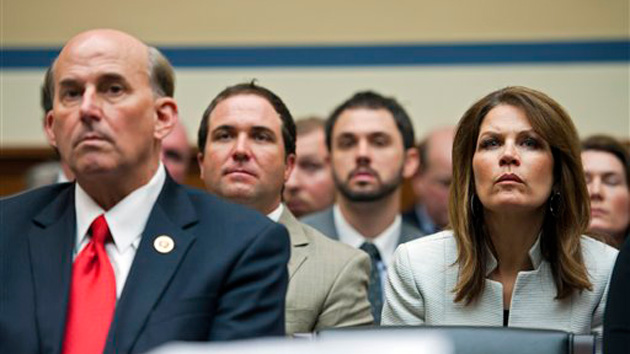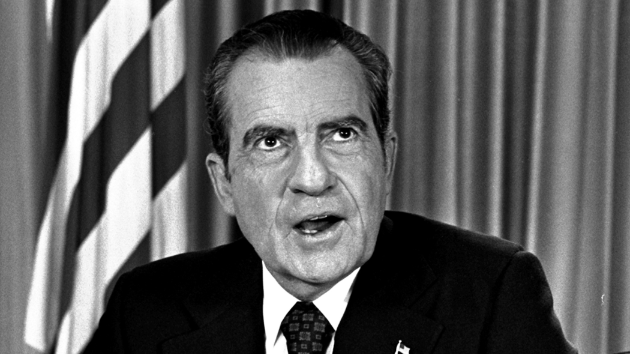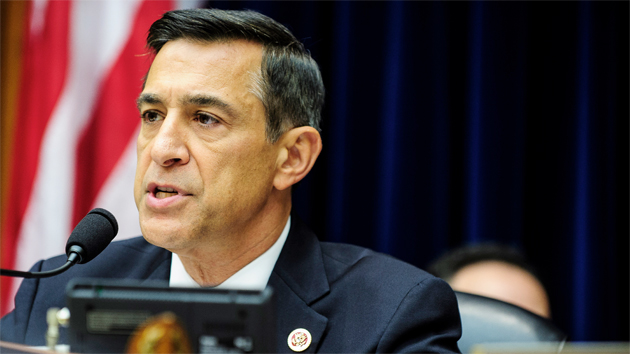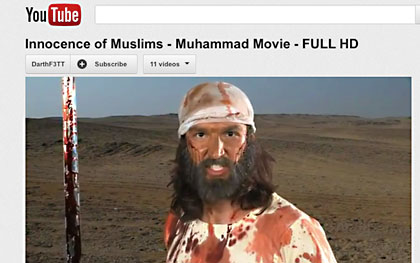
Reps. Louie Gohmert and Michele Bachmann sit in the audience during a hearing on Benghazi on Capitol Hill. This was May…of last year.Cliff Owen/AP
Last week, in response to a Freedom of Information request filed by Judicial Watch, the White House released a memo related to Benghazi that was authored by Ben Rhodes, the deputy national security adviser for strategic communication. The four-page memo, written a few days after the attacks, was designed to prep Susan Rice for her upcoming appearances on several Sunday talk shows. Among other things, it addressed the anti-American protests that had first sprung up in Egypt and then spread throughout the Middle East, including this line as one of the goals of her appearances:
To underscore that these protests are rooted in an Internet video, and not a broader failure of policy.
Republicans say this is a “smoking gun” of a White House cover-up on Benghazi. But is it? Here are 10 things you should know:
- First things first: this memo should have been released earlier, and conservatives are fully justified in asking why it took a FOIA request to finally shake it loose.
- That said, as an adviser for “strategic communication”—what the rest of us call spin—Ben Rhodes’ job is explicitly political, providing guidance on how to put the administration’s foreign policy actions in the best light.
- Nine hours before Rhodes sent his email, the CIA had provided its assessment of what caused the attacks in Benghazi: “We believe based on currently available information that the attacks in Benghazi were spontaneously inspired by the protests at the US Embassy in Cairo and evolved into a direct assault against the US consulate and subsequently its annex.”
- The Cairo protests, in turn, were inspired by the YouTube video “Innocence of Muslims,” which is why Rhodes mentioned the video in his memo.
- As it happens, it turned out that there were no protests earlier in the day in Benghazi—but at the time, that was what the CIA believed.
- However, multiple sources—including McClatchy, Al Jazeera, the New York Times, and then deputy CIA director Michael Morell—have confirmed that anger toward the YouTube video did play a role in motivating the initial attacks.
- Multiple sources also confirm that that the Benghazi attacks were opportunistic—organized hastily to take advantage of the Cairo protests, not planned days or weeks ahead of time.
- Susan Rice, in all her Sunday show appearances, was properly cautious about the role of the video, the nature of the attacks, and the fact that everything she said was tentative and based on “the best information we have to date.”
- Like any administration, the Obama White House wanted to put the best face on its Middle East policy, and there’s no question that their public statements were designed to do just that.
- Nevertheless, the Republican theory that Obama was afraid to blame Benghazi on terrorism has never really made any sense; there’s simply never been any evidence of anything more than a fairly routine amount of spin in the aftermath of the attacks.
So: A “smoking gun”? “Cold, hard evidence” of an Obama cover-up? Just like Watergate? Hardly. Even George Will doesn’t believe that. The video really did play a role in the Cairo protests and then the Benghazi attacks, and there was never anything wrong with saying so. It’s inexplicable that Republicans think this memo proves anything more damning than that.
















